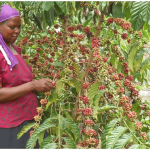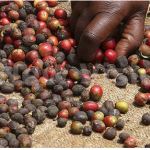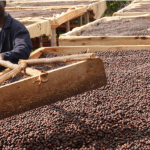After years of talks, the Economic Partnership Agreement (EPA), will be concluded by close of this month, East African Community (EAC) secretary general Richard Sezibera has said.
The main objective of the EPA is to open up the regional market to unlimited European products, except arms. The EPA was conceived in the mid-1990s and the talks were supposed to have been closed about seven years ago. This did not happen because the targeted segment (least developed countries) needed time to develop capacities to trade on equal terms with the European Union (EU).
No need to rush
Speaking at a news conference last week in Entebbe ahead of the 3rd EAC Secretary General’s Forum, Mr Sezibera said the EAC partner states, negotiating as a bloc, need not to rush before securing their interests in the deal. He said: “Negotiations have taken long because we wanted to ensure that EA interests were safe guarded and I am glad to say that the draft which we have now is clear about EA interest and it is also clear about the space the EA requires for her development and what EPAs will contribute to EA development and integration process.”
He continued: “This is the first time East Africa is negotiating her trade relations with Europe under EPAs. The negotiations have been ongoing since 2007. I am hoping that we shall be able to conclude them this month of September.”
Proponents of the EPA say African, Caribbean and Pacific (ACP) regions stand to benefit from the pact as it aims to promote fair trade between the EU and the least developed countries that endorse the deal.
This means that products from the EU will have unlimited access to East Africa’s market and in return, the five regional countries will reciprocate in equal measure, a claim trade analysts like Nathan Irumba and Elly Twineyo say is not entirely possible.
Experts warn regional states about the agreement
The Southern and Eastern African Trade Information and Negotiations Institute country director, Ms Jane Nalunga, in an earlier interview warned the member states against rushing to sign the agreement before evaluating the consequences of the seemingly attractive deal.
She said: “Most of these agreements, including the EPA, are templates that have interest of the European Union and we must not be trapped into signing something we cannot implement no matter how attractive it looks.” “Our capacity is not at the same level with EU. This means that whereas they can easily flood our markets with their products, we cannot do the same because we cannot meet the standards they demand of us.”
Trade analyst Elly Twineyo also the executive director of African Centre for Trade and Development, believes the EPA in its original templates as fronted by the EU, is bad for the region as it will stifle the growth of local industries l.
About EpAs
Economic Partnership Agreements (EPAs) are legally binding bilateral contracts between the European Union and individual African countries. Once signed, EPAs warrant that within a decade, about 80 per cent of that country’s market should open to European goods and services.
On April 16, 2013, the European Parliament reversed an earlier decision to wait until the beginning of 2016 to have EPAs commitment. The deadline has now been brought forward to October 1, 2014, according to an extract from a publication authored by Mr Stephen McDonald, Mr Stephen Lande and Mr Dennis Matanda.








